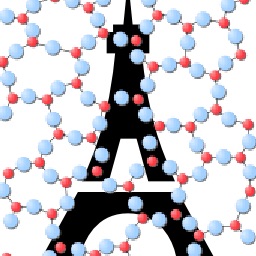Liquid Fragility Determination of Oxide Glass-Formers Using Temperature-Modulated DSC
Glass‐forming liquids exhibit a pronounced diversity in the viscosity‐temperature relation. This has been characterized by the liquid fragility index to quantify the extent of the non‐Arrhenian flow. Precise and accurate determination of liquid fragility is important for understanding a range of phenomena and controlling industrial glass melting processes. In this study, we use the temperature‐modulated differential scanning calorimetry (TM‐DSC) to determine liquid fragility of a wide range of oxide compositions, including tellurites, borates, and silicates. We compare our fragility data to those determined using viscometry and the Moynihan DSC approach. We find that TM‐DSC is a useful method for determination of fragility, as it exhibits higher sensitivity and provides an easier and more reliable determination of characteristic temperatures compared to the Moynihan approach. Moreover, TM‐DSC is faster and requires smaller sample volume compared to the viscometric approach. However, we also observe that TM‐DSC tends to either overestimate or underestimate the fragility of very strong and highly fragile compositions, respectively.
